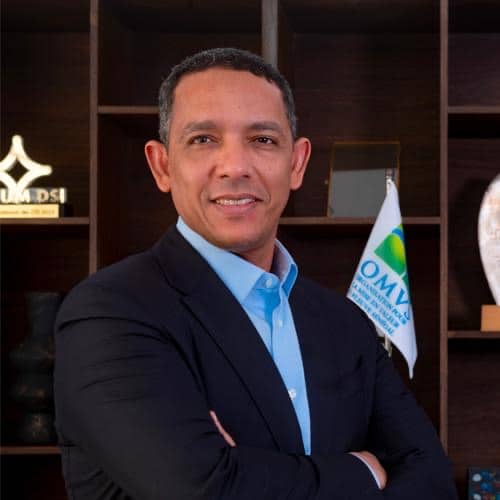Opening Remarks – Mohamed Abdel Vetah,
High Commissioner of OMVS
Science to Inform Policy Decision Making: The Development of the Senegal River Basin
Monday, 10th November 2025, between 12:00 and 13:00 (Brazil time)
Location: SPE 5, located in the Special Events Room, Blue Zone Area
COP Belem, Brazil.
————-///—————///——————///—————-
Dear colleagues, dear partners, dear friends,
It is truly an honor to deliver these opening remarks for our session today, dedicated to the Digital Twin of the Senegal River Basin, on the occasion of the United Nations Climate Conference here in Belém — a moment when the world comes together to reflect, to learn, and to act for our shared climate future.
In 1972, Mali, Mauritania and Senegal made a bold and visionary choice: to manage the Senegal River as a shared resource — as a common good. Guinea joined us in this commitment in 2006.
Together, we created the Senegal River Basin Organization, the OMVS.
And then, we have built dams and shared infrastructure that benefit all our countries — regardless of where the investment is located.
This cooperation delivers Hydropower, Water supply, Irrigation, and beyond that — peace and hope for the future.
This cooperation is recognized as one of the world’s most successful examples of transboundary water governance.
How did we achieve this? Five key factors stand out:
1. Strong political support from our member states
2. A solid legal and institutional framework
3. A clear rule: we share both the costs and the benefits
4. The active involvement of our local communities
5. And most importantly — shared infrastructure that serves everyone
This success is real — but it is also fragile.
We are living in a moment of rapid change: climate pressures, demographic growth, and rising expectations — especially from our youth, who are watching closely to see if our generation will give them the tools and opportunities they deserve.
In such a context, we cannot rely on intuitionor fragmented information.
We need science.
We need clarity.
We need tools that allow us not only to understand today, but to anticipate tomorrow.
This is where the Digital Twin comes in.
A Digital Twin is a living, dynamic representation of the river and its systems.
It allows us to test water management scenarios before applying them in real life.
It allows us to anticipate floods, optimizeenergy generation and navigation, support agriculture, and protect ecosystems — while balancing needs across countries, regions, and communities.
In simple terms: it helps us make better decisions, together.
But technology alone is not enough.
For a Digital Twin to have meaning, it must serve people.
It must listen to the river.
And it must be rooted in governance, dialogue, and trust.
At OMVS, this is our philosophy.
For fifty years, our countries have managed the Senegal River jointly — with equality, transparency, and shared benefits.
Today, the Digital Twin does not replace that tradition.
It strengthens it.
It is the next chapter in a story of cooperation.
That is why this session is important.
We are here to exchange knowledge.
To learn from science.
To build partnerships.
And to ensure that innovation remains inclusive — involving governments, researchers, local communities, and the young innovators of our basin.
The future we want is one where development serves people and protects nature.
A future that gives our youth opportunities, dignity, and the power to shape their own tomorrow.
So, I invite us today to speak frankly, to share openly, and to commit to solutions that make a real difference for the people who live with — and from — the river.
Thank you for being here.
Thank you for believing in cooperation.
Thank you for believing in science that serves life.
